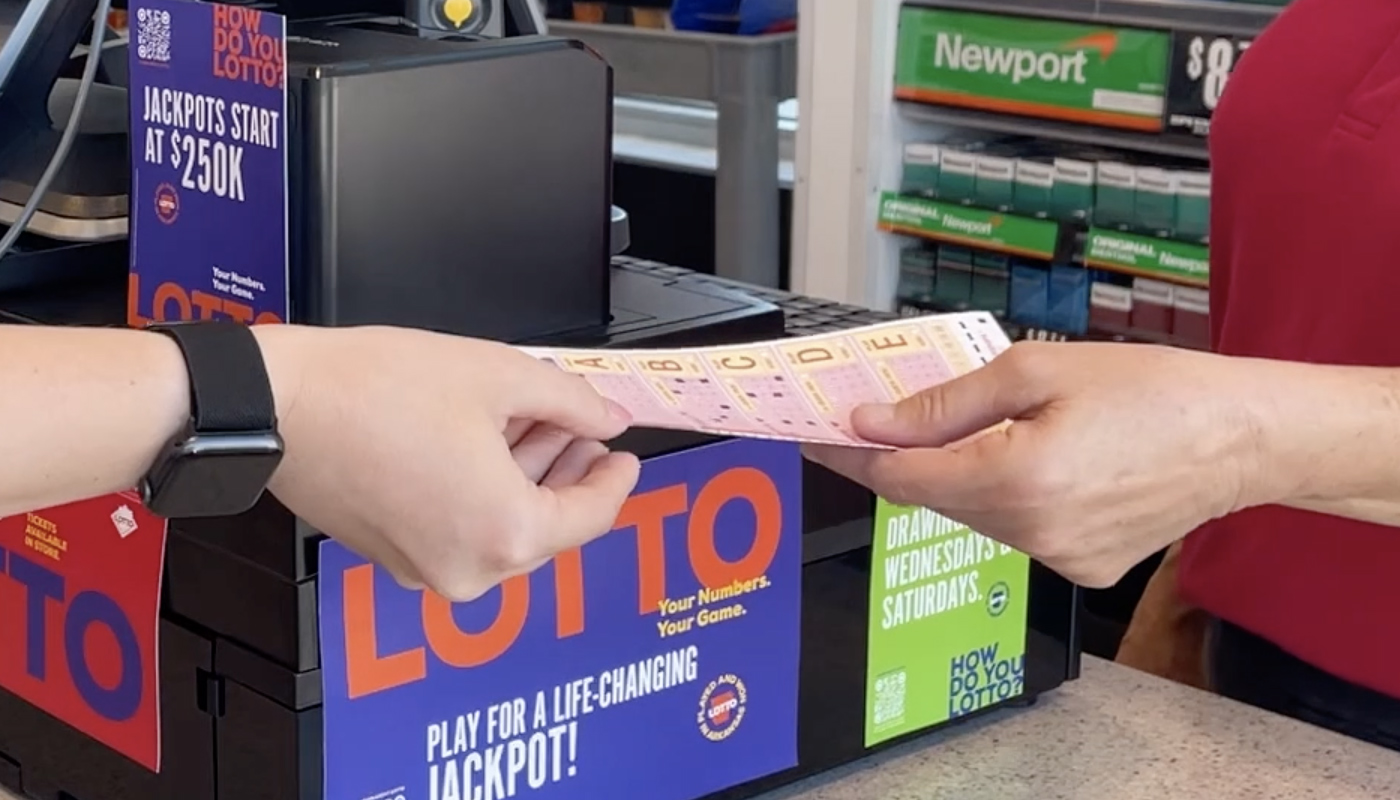
News writer
This wasn't the first time children had been featured in lottery scandals, but it was certainly one of the most memorable.
In Italy in 1999, one scam shook the lotto-loving nation, and the globe, to its core. The scam spanned years, involving children who were blindfolded, multiple alleged drive-by shootings, and multi-million dollar jackpots.
The lottery-gone-wrong continues to reverberate as a warning about lottery corruption and worst-case scenarios.
How mob-style shootings opened the floodgates
Sources from 1999 vary on smaller details, but the thruline remains the same. One morning in January, Italians woke up to the news that nine people had been arrested in Milan in connection with the lottery. During the previous November, leading up to the arrests, police were alerted to multiple drive-by shootings in the city. The target was ministry official Giuseppe Aliberti. Shots had been fired at his car and at businesses owned by his relatives. Aliberti's wife, terrified, called the police.
Additionally, police in a Milan community called Cinisello Balsamo noticed that a lot of locals were winning lottery draws, according to The Ledger. These events would turn out to be directly connected.
Over subsequent months, detectives would uncover far more than gunshots. Aliberti was at the helm of a lottery scheme that exploited children, and that may have been going on for six years. Aliberti would say later to judges at his trial:
We did the first rigged extraction on April 15, 1995. I remember it well because it was my birthday.
The Italian lottery tradition
The Italian lottery was, and is, ingrained in the nation's culture. Italians spent $12.8 billion on the lottery in 2024, making it one of the biggest markets in Europe. The lottery consists of regional number draws and a national draw called SuperEnalotto.
While lottery draws in America often originated around the 1980s, Italian lotteries can trace their origins to the 16th century. Lotteries sprang up across the country to finance public projects and line private pockets, according to History.com, and the games became extremely popular.
In fact, “lotto” is an Italian word meaning “lot, portion, or share.”
Beginning in 1992, Italy experienced a deregulation of gambling in the country and a proliferation of games and drawings. These factors may have made the lottery an easier target for scams.
Bribing blindfolded kids
In 1999, it was customary for blindfolded children to pick numbered balls out of a spinning lottery drum in Italian drawings. According to the BBC, the kids typically hailed from an orphanage, or they were the children of finance ministry officials, like Aliberti. At some point before the arrest - possibly six years, according to the Guardian - Aliberti and his co-conspirators concocted plans to get the children to cheat for them. Sources diverge on how they did it - but they're all equally devious.
One report said the ministry had the children's blindfolds loosened, making sure certain balls had a shiny varnish that the kids would see. The Guardian said the “winning” balls were also larger. Some balls were frozen or heated in advance so kids could feel the “winning” numbers and choose them. Investigators told the BBC that one child's hand was actually burned one time in the scheme.
The kids were pressured by the adults around them. One child, identified as Angela in the press, reported that Aliberti himself sat next to her during the drawings, telling the BBC:
It's important for us. We've got a lot of money at stake. It was complicated getting the right ball, sometimes I couldn't recognize the lighter ones amongst all the others...I felt a failure when the draw was over. Some children were better than me and they were rewarded with millions of lire, three or four million.
The Guardian reported that the children were also rewarded with toys.
Co-Conspirators
Francesco Curatoli, a police officer arrested in the scheme, told the BBC that Aliberti roped in his daughter, who became one of the blindfolded children. Curatoli said:
Then Aliberti got me involved in the system. I did the games instead of him, and we split the money. But I was just one of many.
Curatoli and two members of the Ministry of Finance, who were tax inspectors, according to The Ledger, were arrested on charges of extortion and criminal association. Six members of a criminal gang were also arrested. Aliberti told the media that these conspirators began to threaten and blackmail him when he wanted to end the scheme. They are the likely culprits in the drive-by shootings.
The damage
After police got involved, several previous drawings fell under suspicion, going back six years to Rome, Genoa, Bologna, Milan, and other cities. SuperEnalotto pulled in multi-million dollar jackpots and was involved in the scheme, too. When the 1999 scandal came to light, Italians were beyond mad. They were fundamentally betrayed. An editorial in the Milan newspaper Corriere della Sera stated:
If even Lotto is a lie, then we can't imagine what pure and innocent things might be left in this country. We don't have anything to believe in anymore.
Sales decreased considerably in the fallout. At the time, The Ledger reported that a Rome shop sold 300 tickets in a day, down from its usual 1,500. Giovanni Leva, the shop's owner, told The Ledger: "We've had considerably fewer people gambling so far."
The Italian lottery has long since recovered, and children are no longer utilized in the drawings.
Sentences
When Aliberti stood in front of Italian court judges, he insisted that the scam had just been a small family affair - but he'd gotten in over his head once organized criminals got involved. According to the newspaper La Stampa, he confessed:
I'm a broken man who got caught up in a game that was much bigger than me. If it helps, I'm ready to give back part of my money, part of that 500 million lire ($300,000). I'm a victim.
Called the “Lady Luck” investigation, detectives ultimately rounded up 112 suspects in total, according to Itay's Coordination of Associations for the Defense of the Environment and the Rights of Users and Consumers (Codacons), most of whom were later sent to trial and convicted. Some were released thanks to plea bargains, while others were acquitted.
Aliberti and Curatoli were given sentences of over three years in prison. Financial and moral damages were estimated at 200 billion lira, which they were obligated to pay back. The restitution was for individual lottery players and state entities.
One more surprise
Aliberti wasn't done shocking the Italian masses. He told the court that the shiny ball scheme wasn't original. He said the finance ministry had pulled off the same scheme in the 1980s - he was merely copying it. According to La Stampa, he explained to the judges:
I suspected that the drawings had already been rigged in the 1980s, because I had won with numbers given to me by other officials, to whom I gave a 10% commission on the winnings. When I was assigned to the lottery, I tried the same system. Some of the balls were shinier than the others. At first, I polished them, then I realized that all I had to do was rub them with a handkerchief or on my trousers.
From there, he said he found compliant colleagues, and they began training the children.
The Texas children's scandal
A massive scheme possibly involving children has also been gripping Texas over the past few years. In 2023, an entity called Rook TX bought 27 million Lotto Texas tickets in every possible combination for $29 million through a lottery courier. Rook TX won the $95 million jackpot.
Over time, more details have been revealed, including the mention of a video that allegedly shows minors printing the tickets for the scheme. The video hasn't been publicly released, but it might prove that the courier, and/or the state lottery commission, violated child labor laws, according to the Houston Chronicle. The state's lottery commission has since been abolished, and courier services have been banned from Texas.
What's more evil?
Any scam that enlists children is decidedly sinister. But the Italy scam, now long forgotten, might take the cake. The public trusted its venerated lottery wholeheartedly, and players relished the wholesome tradition of letting children pick the winning numbers. Though probably happily bribed, the kids couldn't consent to the scheme as they had no concept of the broader consequences. Kids can't say “no” to adults who are pressuring them. The deception was downright diabolical, making it quite hard to keep a straight face when reading about Aliberti's “I'm a victim” bit.
This scheme is a stark reminder that lotteries are vulnerable to corruption from the inside, and that some people will go to any length, truly unconscionable ones, to steal jackpot money.



















Comments